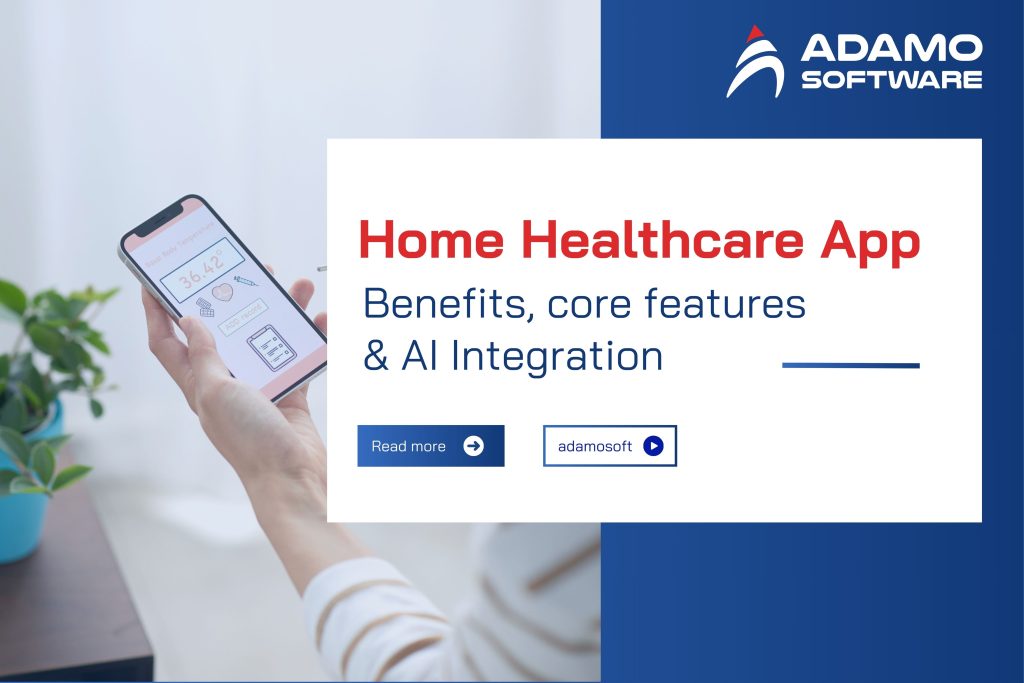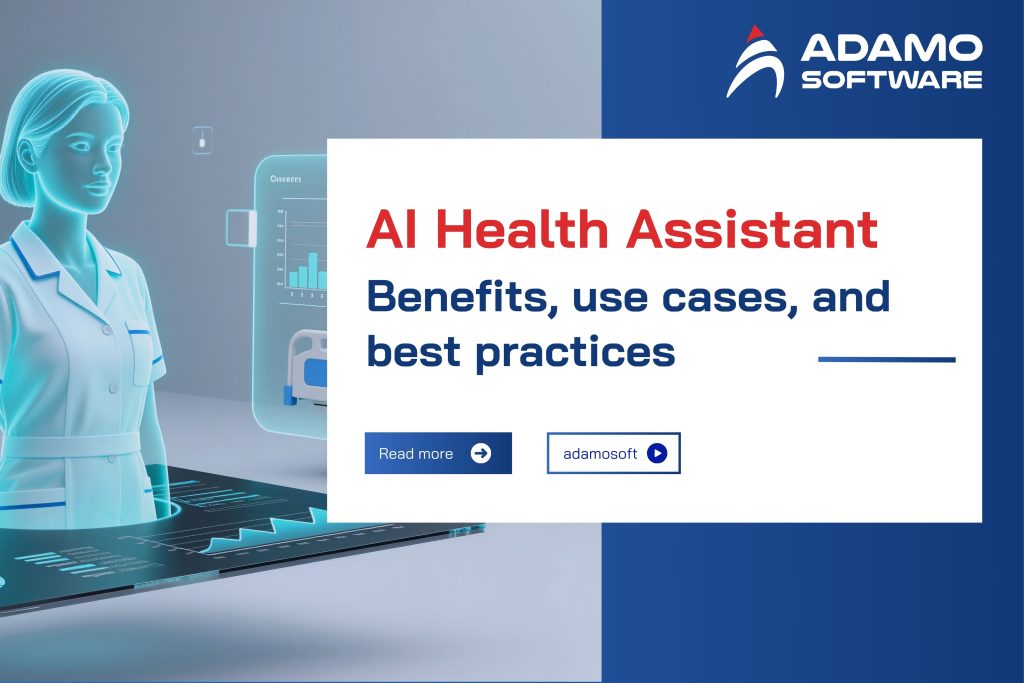Hospital Management Systems in 2026: Types, Key Features & Must-Know Insights
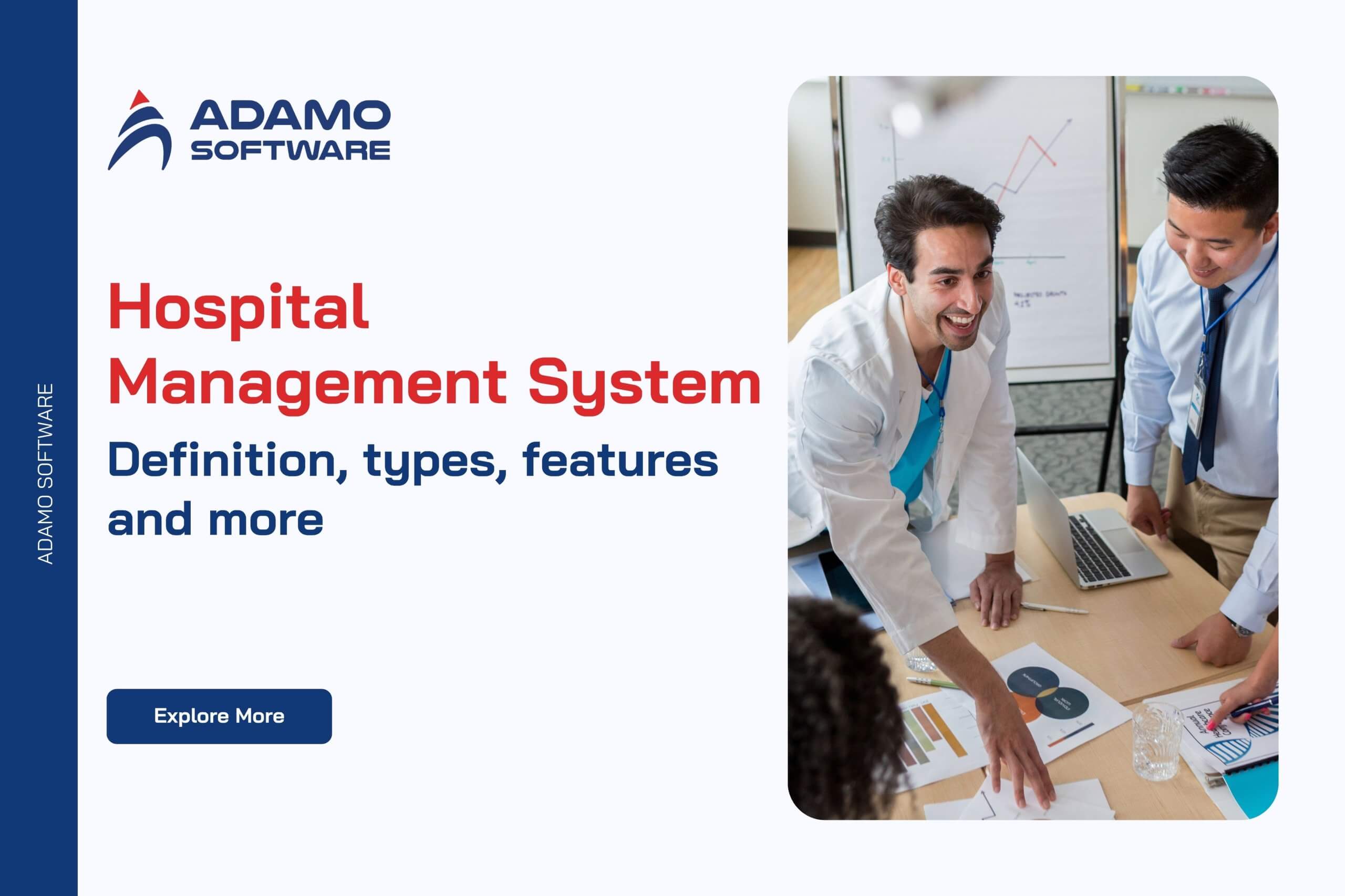
Discover the hospital management system, its definition, types, essential features, and how it transforms healthcare management for better efficiency.
The healthcare environment requires a powerful hospital management system (HMS) to improve operational efficiency and patient care practices. A hospital management system is a complete software platform that enables hospital departments to work together to streamline administrative and clinical processes.
Modern healthcare depends intensively on these systems because they handle different processes, including appointment bookings, patient file storage, medical billing, and inventory oversight. Healthcare providers must understand the various features of available hospital management systems to choose one that meets their specific operational requirements.
This blog examines hospital management system definitions, types, key elements and shows their advantages to healthcare staff and patients. You’ll be presented with essential information about how an effective HMS spins healthcare delivery through transformation while boosting operational success.
I. What is a Hospital Management System?
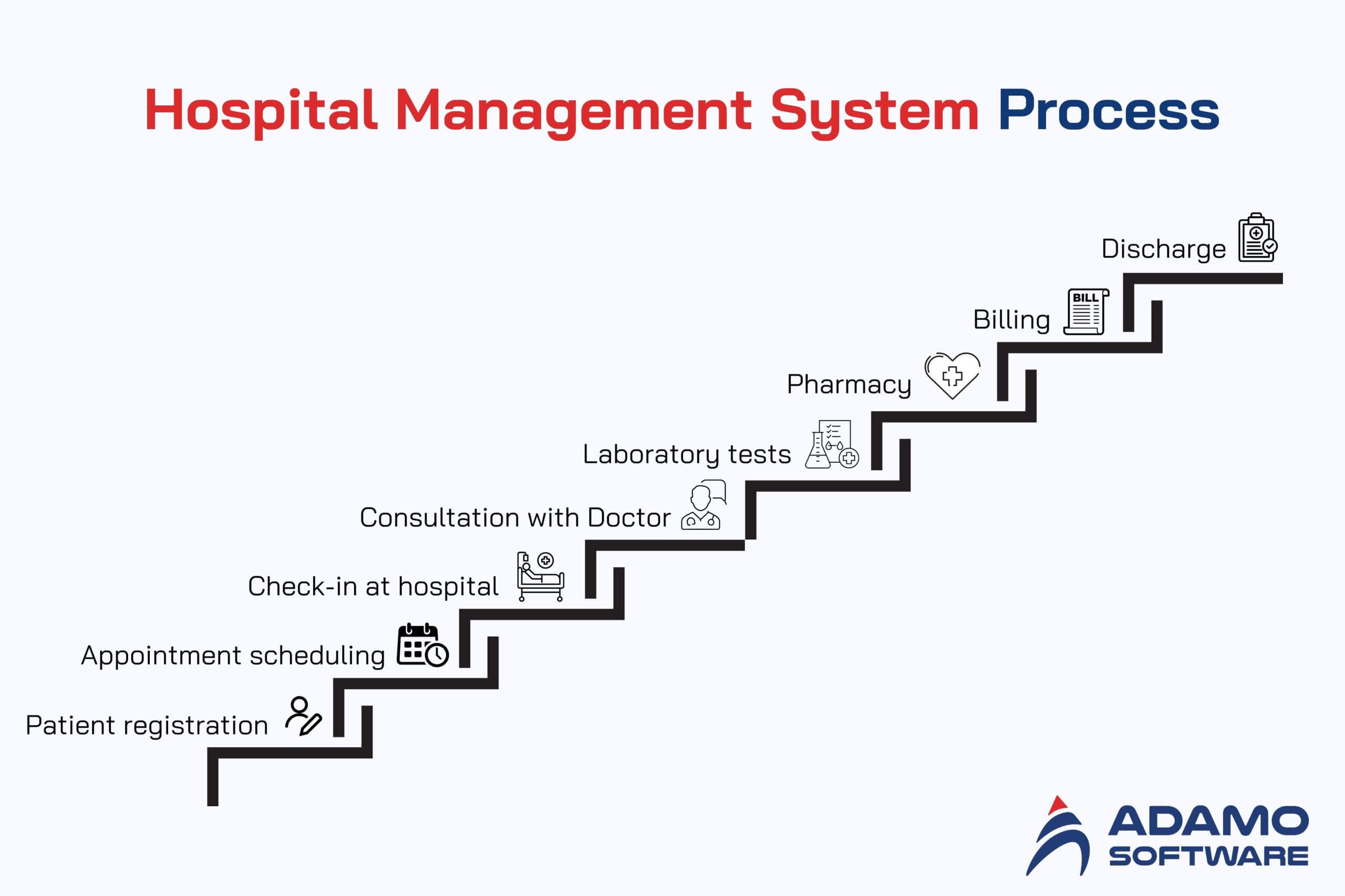
The hospital management system (HMS) is a digital operational platform that makes hospital processes more efficient. An HMS helps medical facilities handle patient enrollment and set appointments while taking care of payments and maintaining clinic documents. It creates higher efficiency by combining multiple functions under one system.
Specifically, the hospital management system automates activities involving patient intake, transmission of lab results, and medication administration. It also allows doctors to rapidly view patient medical records so they can provide prompt, appropriate treatment functions.
Additionally, different departments, including reception and billing, labs, and pharmacies, can securely exchange information through the HMS system. The system reduces errors while maintaining precise documentation and decreasing documentation processes. As a result, hospital efficiency increases with better patient care. The global healthcare IT market expects growth from 2024 to 2029, with a projected annual growth rate of 15.24%, reaching $728.63 billion.
II. Key features to consider when developing Hospital Management System
A proper hospital management system needs essential functionalities for operational enhancement. EMR and patient management, inventory management, billing, payment processing, and analytic tools are the core of a hospital management system.
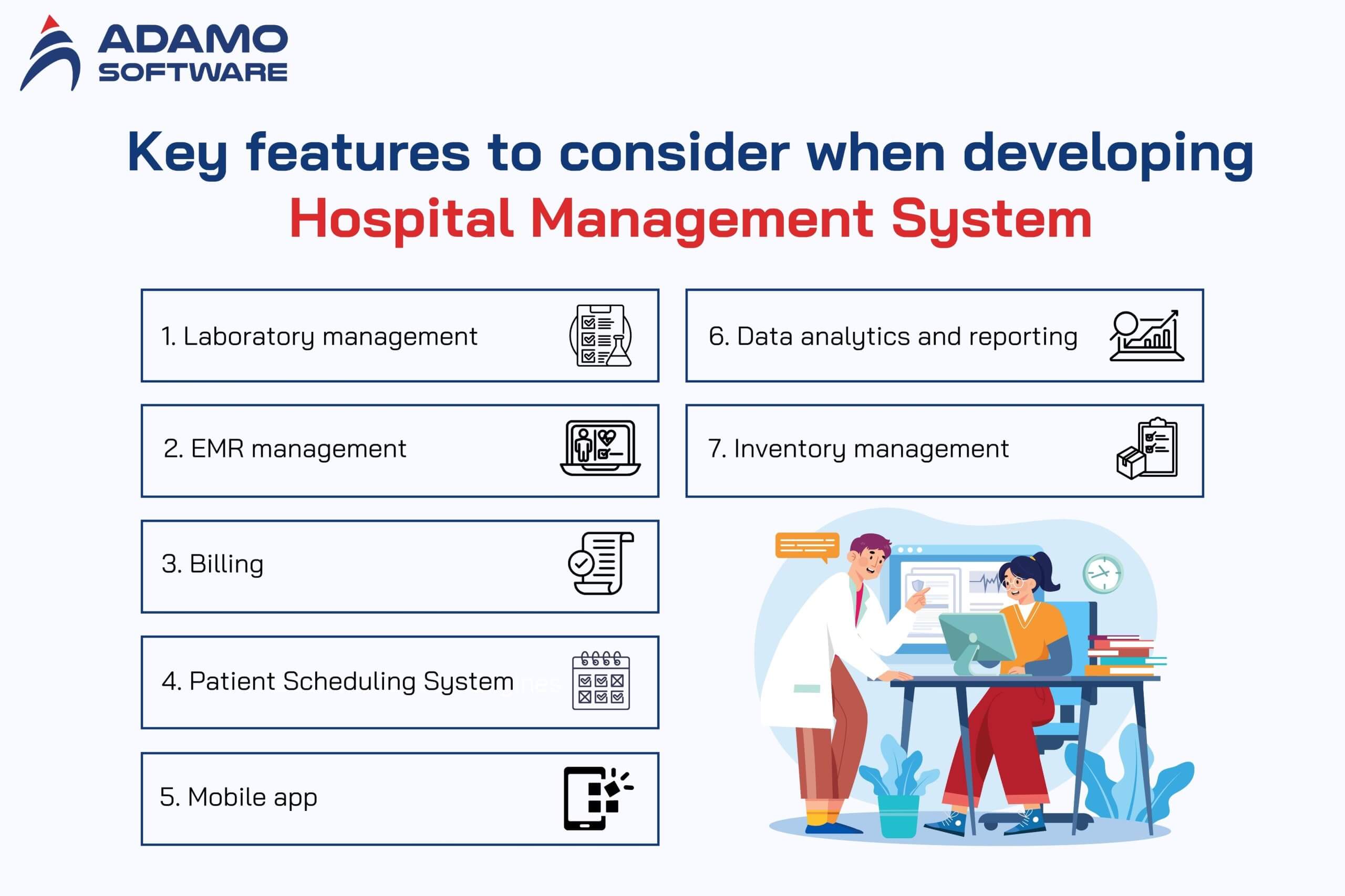
1. Laboratory management
A hospital management system operates as a platform for laboratory management through its processing of laboratory results and patient medical information. The connection of lab systems allows for improved workflow management and guarantees precise information delivery.
The system monitors samples and performs quality assurance tasks while streamlining report generation. As a result, the data gathering and organization approach creates additional value that improves each stage of patient treatment.
Also, the hospital management system connects laboratory information to patient databases to deliver complete healthcare solutions.
2. Electronic medical records (EMR) management
The hospital management system maintains essential patient information comprising comprehensive medical records, prescribing medications, and physician documentation. An EMR feature provides a centralized database that gathers all vital patient data for easy access.
Modern healthcare technology advances drive hospital management systems toward continuous development, which enables them to support contemporary clinical requirements. Also, because of the global pandemic, the hospital management system experienced an expedited need for advanced secure EMR and billing systems.
Modern high-performing systems connect detailed patient record management tools with standardized systems that ensure efficient operation and secure data storage.
3. Billing
The billing process becomes simpler because hospital management systems offer users easy payment methods. This feature helps to cut down on administrative work and generate better patient satisfaction results.
Healthcare organizations also need to conduct insurance eligibility verification as a crucial system capability. This functionality monitors health insurance policies to support correct billing procedures. For this, real-time eligibility (RTE) verification operates as a hospital management system component to auto-check insurance validity digitally.
Medical billing software helps verify if the insurance provider maintains legal status to ensure correct coverage processes and normal payment operations.
You can explore more about medical billing software cost for 2026 here.
4. Patient scheduling system
A hospital management system should contain scheduling features that enhance the communication process between patients and physicians. The system records visits and maintains a record of appointments alongside documentation of doctors’ patient notes.
Through healthcare patient scheduling software, patients can receive notifications, including follow-up messages and test result alerts, to achieve prompt scheduling of medical visits.
Overall, patient care improves through appointment scheduling features, which provide organized organizational structures for providers and patients.
5. Mobile app
Hospital management systems benefit substantially from mobile app additions because they build user-technology connections to create superior experiences.
Health technology development requires mobile healthcare applications for better access to care and improved treatment processes.
A user-friendly interface will boost the optimization of the illness management process and accelerate treatment efficiency. Additionally, application enhancements deliver better care practices, easing patient stress while creating superior experiences to prevent disease advancement.
6. Data analytics and reporting
The hospital management system uses analytics tools to analyze performance metrics, detect gaps, and identify useful insights to help improve the operation. Specifically, the systems evaluate massive data collections to present financial reports revealing budgetary problems and identifying payment errors and discrepancies.
Also, through cognitive analytics, the patient experience receives improvement by developing care optimization recommendations and healthcare delivery process streamlining suggestions.
The hospital management system’s automated form builder process makes collecting and examining patient data easier, enhancing overall decision-making capabilities.
7. Inventory management
Hospital management systems should integrate inventory control functions to improve medication prescription and purchase procedures.
Hospital management system features maintain treatment safety and compliance, including e-prescribing, medication tracking (eMAR in healthcare), and computerized physician order entry (CPOE). Healthcare Inventory Management System identifies prescription drug conflicts, generates warnings, and suggests appropriate treatments to create secure treatment strategies.
Automating inventory procedures within the hospital management system generates safer treatments and error-free medicine access that leads to superior healthcare results.
Explore Our Tailor-made Software Development Solutions
We are confident in providing end-to-end software development services from fully-functioned prototype to design, MVP development and deployment.
III. Main types of hospital management systems
Hospital management systems are essential for healthcare institutions to control different operational functions alongside workflow operations and operational tasks. Hospital information systems fall into various categories based on their functionality specifications. Here are some of the common types of hospital management system (HMS) categories in the medical industry:
1. On-premises HMS
On-premise hospital management systems are the ones that organizations deploy directly at their hospital buildings. These systems need specific hardware equipment along with IT personnel to provide support. On-premises HMS enables organizations to customize and conduct extensive data management operations fully. However, these systems require expenses for hardware acquisitions together with software expenditures and maintenance costs.
2. Cloud-based HMS
Cloud-based hospital management systems operate on remote servers that users access through the network. Such systems include flexibility features enabling hospital administrators to distribute resources that match their current requirements.
Cloud-based systems prove to be less expensive than on-premises ones. These systems do without physical hardware installations and provide better maintenance expenses. External data storage in cloud-based HMS makes security and data privacy vital because of how information is stored off-site.
3. Open-source HMS
With open-source hospital management systems, hospital staff can access the source code to tailor software programming for their unique operational requirements. Such implementation flexibility helps decrease costs, but clients must maintain technical staff capability for proper implementation and maintenance needs. Hospitals must evaluate open-source hospital management systems based on their ability to receive regular community updates and support from hospital staff.
4. Integrated HMS
Healthcare facilities can benefit from integrated hospital management systems that unite EMR with billing scheduling and pharmacy management under one coherent system. Automated task execution enables hospitals to decrease the workload on their staff members. The integration function of this technology simplifies operations by eliminating duplicate data entries and boosting operational performance.
Overall, integrating hospital management systems produces better interoperability than several disconnected hospital departments or separate hospital systems.
Apart from these primary HMS categories, the healthcare sector uses specialized and enterprise HMS as well as mobile and web-based HMS and patient engagement HMS. Every hospital management system type requires specific attention because their importance and requirements differ. The right HMS solution depends on multiple variables, such as hospital dimensions, financial capacities, and the required infrastructure.
IV. Essential factors to consider when choosing the best HMS software
A hospital organization must select its HMS carefully because this choice shapes the quality of patient service and workplace performance alongside organizational achievement. Selecting the best HMS software becomes difficult since multiple options exist in the market. These elements below are some crucial considerations that help organizations identify their ideal hospital management system software:
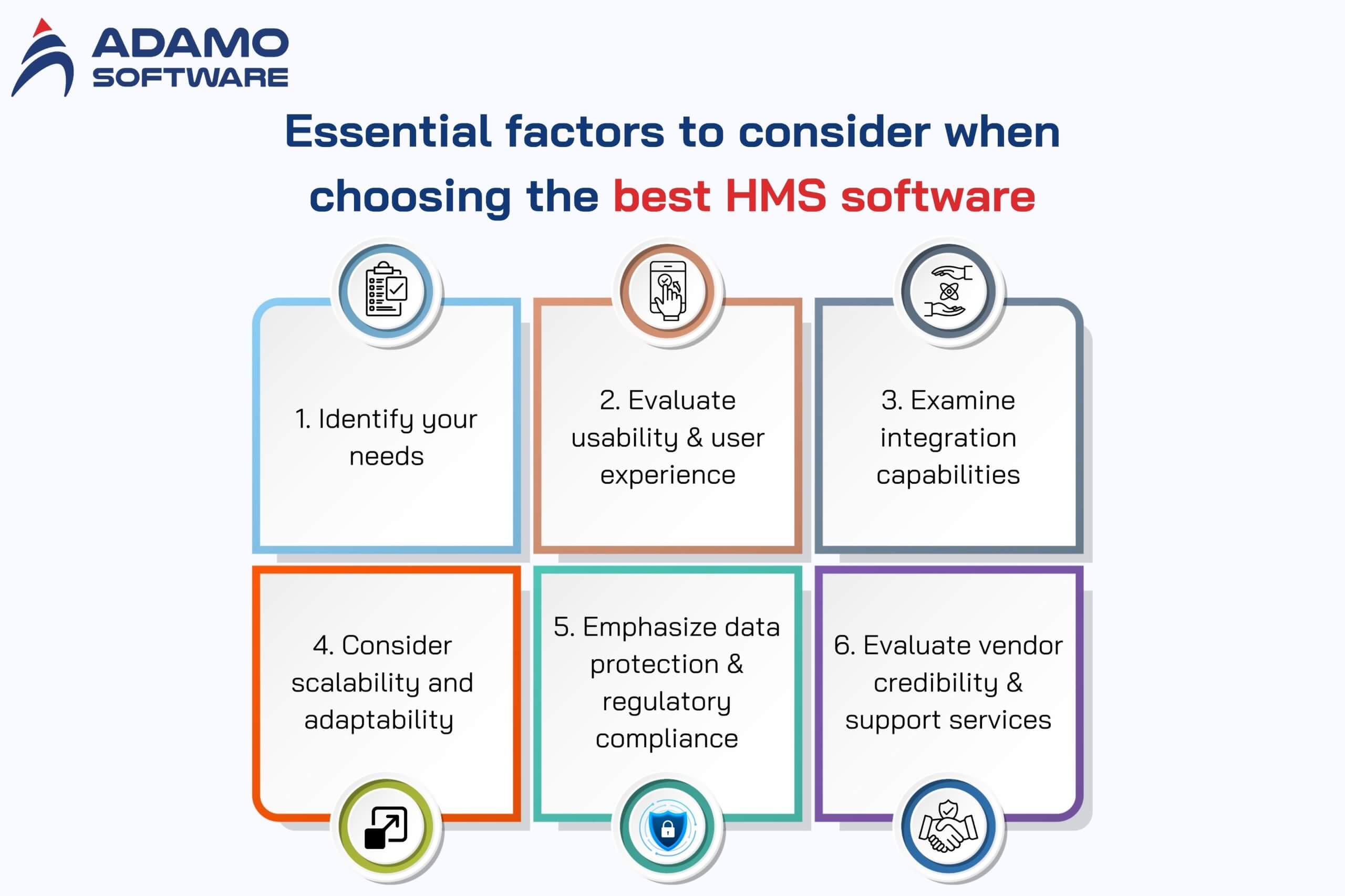
1. Identify your needs
Organization leaders must establish precise hospital management software requirements and goals before undertaking the search for new solutions. Your organization needs to examine its characteristics, including size, organization, specialty practice areas, workflow complexity, regulatory compliance requirements, and current system integration needs. Identifying essential features and necessary functions will help you select an HMS software system that matches your organization’s core targets.
2. Evaluate usability and user experience
A suitable HMS software system needs to have an intuitive interface that provides effortless navigation for both healthcare professionals and staff members. The modern interface, alongside customizable dashboards and automated workflow features should be present in your HMS software to reduce manual work while streamlining procedures.
User experience testing through software trial periods also enables hospitals to evaluate system usability and workflow compatibility between organizational needs and typical user behavior.
3. Examine integration capabilities
The essential requirement of any HMS system is integration capabilities, which ensure data exchange interoperability and workflow continuity. Test HMS software integration features to verify compatibility with all electronic health records (EHR) platforms and laboratory information systems (LIS). Additionally, ensure it works with billing systems and any other third-party applications your organization uses.
Look for HMS software that supports HL7 and FHIR, with customizable integration options tailored to your organizational needs.
4. Consider scalability and adaptability
The HMS software must follow your organization’s growth by adjusting to different requirements. Assess how potential hospital management system software handles increased capacity and future additions of users and functional requirements.
Organizations must seek vendors that offer modular solutions with customizable features. Additionally, these solutions should include adaptable licensing options that match the organizational growth trajectory and the size of the institution.
5. Emphasize data protection and regulatory compliance
Healthcare data security and compliance standards create essential requirements that force hospital management systems to adhere to strict standards. The regulatory standards protect patient information and enforce compliance with HIPAA, GDPR, and HITECH.
Since data protection must be assessed in HMS software solutions, it is important to evaluate their features for encryption technology and security protocols. Additionally, consider the access control systems, auditing capabilities, and updated schedules.
Select HMS software vendors who demonstrate dedicated security and compliance practices from development to implementation of their software products.
6. Evaluate vendor credibility and support services
Selecting an HMS software vendor who maintains a high reputation serves as a necessary step for achieving both deployment success and sustained partnership.
Assess HMS software vendor reliability through research of their credentials combined with review analysis of existing customers and detailed case studies. Ask the vendor about their available customer support options, together with training resources and maintenance services that they provide.
Such steps guarantee your organization will obtain the required support both during the implementation stage and after it is completed.
In short, investigate all HMS software options to ensure they meet your operational needs. Focus on intuitive user experiences and integrative features. Additionally, you should consider data protection, vendor reliability, and service quality.
The evaluation of these vital factors, together with extensive research, will enable you to select an HMS software system that matches your organizational objectives. Healthcare delivery to patients and operational efficiency will advance as a result of your selection in the current dynamic healthcare system.
V. The future trends to look forward to for hospital management system
The emergence of healthcare technology innovations has transformed the way medical organizations handle their operations each day. Hospital management systems (HMS) continue to advance rapidly through changes, which enables better care quality and efficiency and helps reduce healthcare expenditures. Continuous advancements define the future development of this sector, and these patterns are what to follow:
1. Integration of AI and machine learning
Artificial intelligence (AI) and machine learning (ML) have emerged as practical components for hospital management systems. These technologies will determine the direction of the healthcare industry.
Healthcare institutions use AI through predictive analysis to forecast patient streams and automated systems for running administrative procedures. Implementing AI-boosted software for hospital management allows healthcare facilities to produce analytical-based decisions that generate enhanced care quality and operational savings.
2. Growing use of cloud technology
Cloud services provide a flexible storage system that allows users to handle large healthcare datasets in a budget-friendly manner. Hospital management software that operates on cloud infrastructure allows staff members to work from various locations. They can access it anywhere through web-based features, benefiting collaborative work environments.
Through this technology, hospitals can share data immediately, which enhances communication between departments and supports the delivery of coordinated patient treatment.
3. Improved data security
Modern cybersecurity threats demand that healthcare institutions take protective measures to safeguard their sensitive information database. The future hospital management systems will implement state-of-the-art security functions that integrate encryption across complete processes. They will also utilize multiple authentication methods and strict authorization systems to safeguard patient data against unauthorized access.
4. Advanced analytics and reporting
The next generation of hospital management systems will use data analytics to generate strategic planning support through advanced analytical systems. The healthcare administrator can effectively track performance, predict modeling, and conduct trend analysis and automated reporting through modern hospital management systems features. This implementation method gives healthcare providers direct access to evidence-based decision-making methodologies.
5. Incorporation of telemedicine features
Telemedicine solutions showed exponential growth during the COVID-19 pandemic, and medical practices expect it to remain permanent. Future hospital management systems will integrate telemedicine features, enabling virtual exams and meeting scheduling for healthcare institutions. They will also track remote patient progress via unified electronic medical databases.
VI. Got in mind a healthcare software development idea? Contact Adamo

Adamo Software has healthcare software solutions expertise that will help you with your hospital management system development. We focus on end-to-end healthcare-specific development services throughout the entire process, including prototype creation and deployment.
Our skilled team provides hospital management software that meets HIPAA and GDPR standards for efficient healthcare management. Adamo’s main priority is to establish perfect code quality with logical software designs that create secure applications while enhancing user experience.
Additionally, our agile healthcare software development process includes client involvement throughout each development stage, so the final product will be just what you ask for.
The hospital management system from Adamo Software will improve operations, enhance patient care, and boost efficiency for healthcare institutions. Contact us now!
FAQs
1. What challenges are involved in HMS development?
Organizations face multiple hurdles in the development process of hospital management systems. Medical facilities face major risks because they need to protect their highly sensitive patient information from cyber-attacks completely. Legal operations within the healthcare sector require healthcare providers to follow HIPAA and GDPR.
An HMS implementation also requires high starting expenses, which must be considered when planning hospital budgets. Medical organizations need adaptable IT structures that can handle their software components and accommodate changes in operational requirements.
Partnering with an experienced software developer like Adamo Software helps overcome challenges, ensuring successful implementation and a more efficient development process.
2. Which one should you choose: off-the-shelf or custom HMS?
Hospital management systems available on the market, or off-the-shelf solutions, provide cost-efficient solutions that can be deployed rapidly. However, these hospital management systems regularly fail to include the particular features that hospitals require.
Custom HMS development enables the creation of unique solutions that address individual hospital requirements. Implementation of this approach leads to optimized software integration with hospital work patterns, which generates capable operational efficiency throughout extended hospital growth.



